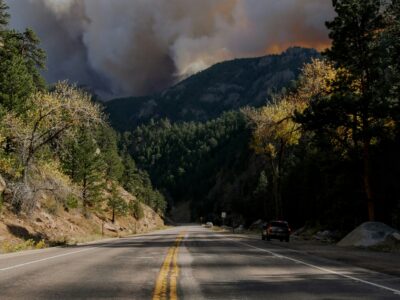Get Ready for Phase 2 of the Deregulation Wars
Air quality standards are next on the chopping block.
The first phase of Trump’s regulatory rollbacks has been directed against Obama’s climate change regulations. Those deregulatory actions will be finalized soon. What happens next will be in the hands of the courts. But the Trump EPA is now beginning a new phase in its attack on environmental regulation. Having tried to eliminate climate rregulation, its next move will be an attack on basic protections against air pollution.
The Clean Air Act, the federal air pollution statute, is largely structured in terms of achieving national ambient air quality standards (NAAQS). In March 2020, EPA will propose revisions in the standards for ozone and particulates, the two most important pollutants. It has already started work on the revisions. Guess what? EPA won’t be planning to tighten the standards. If anything, they are likely to loosen them, weakening a crucial safeguard of publication.
Trump’s EPA has been working over the past couple of years to undermine the scientific basis for the standards. First, it purged CASAC, its general scientific advisory board, of independent academic experts, replacing them with industry-connected scientists. The committee currently does not contain any statisticians, experts in modeling risk assessment or epidemiologists. The Administration also eliminated the specialist advisory boards dealing advising CASAC on the complex science relating to these two pollutants. Even Trump’s handpicked CASAC has complained about losing the advice of those specialists.
Second, the Trump EPA has been working to limit the evidence that it will consider in deciding on air quality levels. It floated a proposal, which it is still considering, to eliminate any scientific study unless the sponsors of the study were willing and able to make their data available to industry or the public at large, which is often impossible because of patient confidentiality concerns. The purported purpose is to improve transparency and scientific rigor, but the real goal seems to be blindfolding the agency from considering key studies on the health effects of particulates.
It remains to be seen whether the Administration will be able to go through the complex process of preparing its air quality proposals by the planned March 2020 deadline. The current plan is to finish the ozone standards by late 2020. That might just be doable – it seems to have taken between six months and a year to go from proposal to final rule. What happens after that is harder to predict. If the. Democrats somehow manage to capture Congress and the White House, they might be able to use the Congressional Review Act to kill the rollbacks. If not, the proposals will undoubtedly still be pending in court when the next Presidential terms begins. A Democratic Administration will undoubtedly seek to have them sent back to EPA for futher consideration. If Trump is reelected, then it will be up to the D.C. Circuit and perhaps then the Supreme Court to decide whether EPA has given a reasonable, evidence-based explanation for the rollbacks.
The most direct impact of the rollbacks will be on public health, but there will also be consequences for climate change. Reducing these key pollutants would also tend to reduce use of fossil fuels because of the costs of meeting tighter standards. Lowering the air quality standards, however, would be a boon for the oil and coal industries. So it’s public health and climate change on one side of the balance, and the oil and coal industries on the other. You can probably decide for yourself which side Trump is likely to favor.
Reader Comments
6 Replies to “Get Ready for Phase 2 of the Deregulation Wars”
Comments are closed.







You intellectuals must learn from The Lessons of History ASAP because we are in rapidly increasing environmental trouble as you well know.
It’s way past due time for intellectuals (per Will and Ariel Durant History of Civilization) or we shall most certainly become extinct in this century with increasingly out of control disasters we are experiencing.
IT’S TIME FOR ACADEMICS TO INFORM, EDUCATE AND MOTIVATE THE PUBLIC TO SAVE OUR PLANET!!!
I strongly recommend that you read the following:
When reporting on mass shootings is no longer enough
John Temple, director of the Investigative Reporting Program at the Graduate School of Journalism | August 5, 2019
https://blogs.berkeley.edu/2019/08/05/when-reporting-on-mass-shootings-is-no-longer-enough/comment-page-1/?unapproved=289761&moderation-hash=a8e7dbd98acfc8d435523977faae1cc9#comment-289761
Your failures to communicate with the public who are as concerned as you are, your arrogant marginalization of the public, is a major part of the problem that is destroying our civilization.
After years of making comments on this blog I have been forced to conclude that most academics are definitely living in an Ivory Tower, by proving almost daily that Richard Hofstadter is still right about the fact that “intellectuals don’t want to take on the sort of complications and impurities that come with being public.”
It is still an impossible dream to expect intellectuals/academics to meet the challenges of change that the Durants proved is a paramount reason that our civilization shall also decline and fall also, due to failures of both politicians and intellectuals.
As Eisenhower stated in his 1961 Farewell Address, the power of money is to be gravely regarded, and is the worst case scenario fact of life today for most scholars.
The worst case scenario proof of your subservience to the fossil fuel industry was reported in “We Demand a Fossil Free UC” https://www.cityonahillpress.com/2019/03/01/we-demand-a-fossil-free-uc/ by City on a Hill Press produced by UCSC students.
That’s why you keep failing to inform, educate and motivate the public, Ike was right.
Prof. Farber, the approvals of the UC ownership of Fossil Fuel investments by you and your LP colleagues has just proven beyond all doubt that there is absolutely no difference between the corruption of academics and that of politicians when if comes to being controlled by the power of money.
You are a paramount reason for the fact that we cannot save our environment from destruction by global warming.
Anthony, I usually don’t respond to your continuing attacks on us, but here I’ll make an exception, just to point out your factual error: the UC Academic Senate has made a formal recommendation to the UC Regents to divest from fossil fuels.
https://www.latimes.com/california/story/2019-07-18/uc-professors-call-on-regents-to-divest-from-fossil-fuels
Overall, I’m not sure why you believe we, as legal academics, are specifically responsible for environmental policy failures. Most of us on this blog have devoted our careers to try to improve environmental policy, through direct engagement with policymakers, representing clients in our law clinics, and recommending law and policy solutions to environmental challenges both in our academic work and in other products. You can find plenty of evidence of this in our blog posts as well as elsewhere. And we’re always open to more ideas. Thanks for reading.